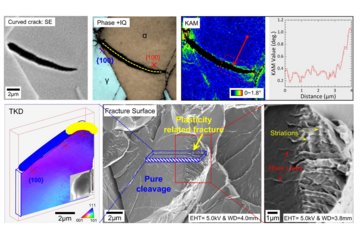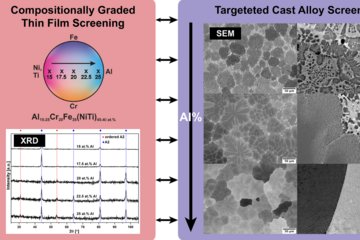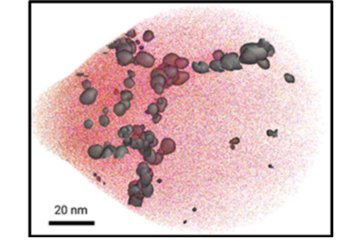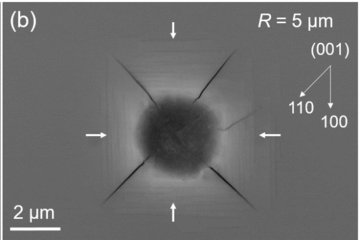All genres
1181.
Talk
Multiscale design of aluminium alloys based on ab-initio methods. ICAA 11 – 11th International Conference on Aluminium Alloys 2008, Aachen, Germany (2008)
1182.
Talk
Growth simulations of non-polar GaN surfaces: Thermodynamics, kinetics and dopant incorporations. Bremen DFG Forschergruppe: Workshop in Riezlern, Reizlern, Austria (2008)
1183.
Talk
Modeling of electronic and optical properties of GaN/AlN quantum dots by using the k.p-method. Bremen DFG Forschergruppe: Workshop in Riezlern, Riezlern, Austria (2008)
1184.
Talk
Homogenization in Polycrystal Mechanics on the Basis of First Principles Simulations. IUTAM Symposium on Variational Concepts in Materials Mechanics, Ruhr-Universität Bochum, Germany (2008)
1185.
Talk
First Principles Predictions of Mechanical Properties of FeMn-Alloys. Workshop des SFB761, Beilngries, Germany (2008)
1186.
Talk
First Principles Calculation of Stacking Fault Energies of FeMn-Alloys. Materials Science and Engineering (MSE08), Nürnberg, Germany (2008)
1187.
Talk
Ab initio study on elastic properties of Fe3Al-based alloys. Materials Science and Engineering (MSE'08), Nürnberg, Germany (2008)
1188.
Talk
First principles determination of thermodynamic properties of metals. Materials Science and Engineering (MSE08), Nürnberg, Germany (2008)
1189.
Talk
Ab Initio Based Modeling of Engineering Materials: From a Predictive Thermodynamic Description to Tailored Mechanical Properties. Materials Science and Engineering, Nürnberg, Germany (2008)
1190.
Talk
Multiscale simulations of Hydrogen embrittlement. Materials Science and Engineering (MSE08), Nürnberg, Germany (2008)
1191.
Talk
Hydrogen-enhanced local plasticity - An atomistic study. Materials Science and Engineering 2008, Nuernberg, Germany (2008)
1192.
Talk
Solubility and surface kinetics of N in diluted nitrides. Computational Materials Science Workshop, Ebernburg Castle, Germany (2008)
1193.
Talk
First Principles Predictions of Mechanical Properties of FeMn-Alloys. Computational Materials Science Workshop, Ebernburg Castle, Germany (2008)
1194.
Talk
First principles study of vibrational and thermodynamic properties of the secondary structure of proteins. Computational Materials Science Workshop, Ebernburg Castle, Germany (2008)
1195.
Talk
The free energy of bcc iron: Integrated ab initio derivation of vibrational, electronic, and magnetic contributions. Computational Materials Science Workshop, Ebernburg Castle, Germany (2008)
1196.
Talk
Band dispersion effects in supercell calculations for defects. Computational Materials Science Workshop, Ebernburg Castle, Germany (2008)
1197.
Talk
Grain Boundaries: Statics and Mobility. Computational Materials Science Workshop, Ebernburg Castle, Germany (2008)
1198.
Talk
Effect of strain and polarization on the electronic properties of 2-, 1- and 0-dimensional semiconductor nanostructures. Computational Materials Science Workshop, Ebernburg Castle, Germany (2008)
1199.
Talk
Numerical studies of the radial Schroedinger equation. Computational Materials Science Workshop, Ebernburg Castle, Germany (2008)
1200.
Talk
Towards an ab initio description of corrosion. Computational Materials Science Workshop, Ebernburg Castle, Germany (2008)











